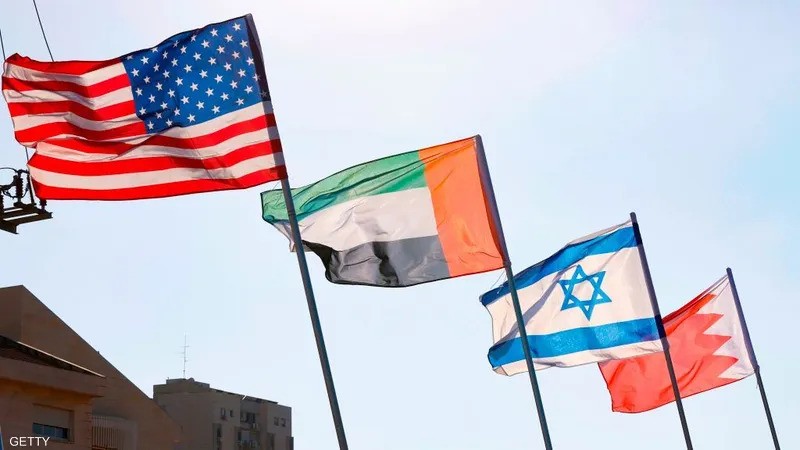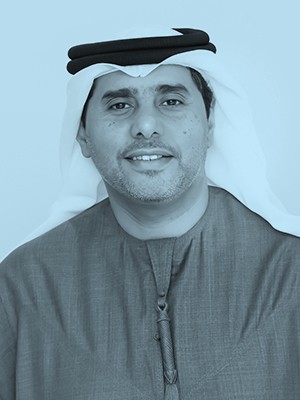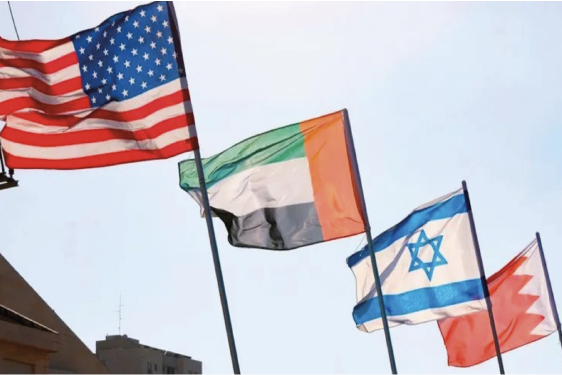Quantum Politics in the Middle East
The traditional geopolitics, characterized by territorial concerns and alliances, is giving way to a new "quantum politics" in the Middle East. This shift is marked by partnerships that transcend geography, a lack of ideological alignment, and a focus on cooperation over defense. Driven by global issues like climate change and supply chain sustainability, this approach may lead to the resolution of longstanding tensions and promote global stability. However, the concept is new and requires time for effective application.

- by Mohammed Abdul Rahman Baharoon ,
- Friday, 28th July, 2023
“Geopolitics is the motivation behind most international conflicts, as countries seek to advance their strategic interests and protect their national security in a world where power and resources are limited,” Ian Bremmer writes in his 2015 book, Superpower: Three Choices for America’s Role in the World. Be it conflicts over fertile riverbanks, fortified highlands, natural harbors, sacred places, or natural resources, military and political leaders have long understood that control over geography embodies power.
Middle Eastern history, too, has been repeatedly marked by such struggles over strategic physical features of the natural world. Competition for the waters of the Nile River has continued since the time of Moses all the way to the modern day, with ongoing regional tensions over the Grand Ethiopian Renaissance Dam (GERD). Conflicts over key Middle Eastern port cities can be dated at least as far back as the Punic Wars (264-146 BCE) and remain a crucial factor in today’s war in Yemen, with the fight over the port of Hodeida, overlooking the Red Sea. Sacred places have also frequently been at the heart of geography-based conflicts in the region: from the time of Abyssinian ruler Abraha of Aksum’s march on Mecca, to the Crusades, all the way to the present-day Israeli-Palestinian tensions over the al-Aqsa Mosque/Temple Mount in Jerusalem.
Put another way, modern history in the Middle East did not significantly alter regional actors’ approaches when it came to the classical physics of conflict. The occupation of Palestine, the Iraq-Iran War, the Iraqi invasion of Kuwait, the Second Gulf War, as well as the civil war in Yemen all were or are centered around territorial considerations — the loss or recovery of land. Escaping that cycle required a shift away from one of the main root causes of conflict: geography.
The more recently observed trends toward de-escalation in the region became especially perceptible in the Abraham Accords, originally signed by Israel, Bahrain, and the United Arab Emirates in September 2020. Over the past four decades, Arab states had two main regional enemies: Israel and Iran. The Abraham Accords sought to de-conflict relations with Israel, while the current talks between Saudi Arabia and Iran are an attempt to reach a rapprochement with another arch rival.
The Abraham Accords, of course, were not the first instance of peace between Israel and an Arab state — both Egypt and Jordan signed peace agreements with the Israelis years before that. However, the drastic difference between those treaties and the Abraham Accords was the fact that the UAE and Bahrain do not share a border nor have any territorial disputes with Israel. The Abraham Accords, thus, involved no land swap or border security agreement; this, combined with the fact that these three states were not actually involved in a direct conflict, indicated that this was not a classical peace deal.
The difference between peace based on land and peace without land is like the difference between classical physics and quantum physics. The Abraham Accords were not governed by the dynamic variables of geopolitics but rather by a new set of considerations, which are fast becoming the dominant factors driving current regional approaches to dealing with the Middle East’s chronic conflicts.
The same approach notably governed the 2021 al-Ula Gulf Cooperation Council (GCC) summit, which reconciled the Saudis and Emiratis with the Qataris, last year’s rapprochement between the UAE and Turkey, and now the ongoing normalization talks between Iran and Saudi Arabia. These examples should not be interpreted as evidence of mere tactical pragmatism based on former British Prime Minister Lord Henry John Temple Palmerstone’s mantra of eternal friends and perpetual enemies; rather, they arguably signify a more profound shift akin to what Theodore Becker described, in a 1991 academic study, as “quantum politics.”
New principles for Middle Eastern politics
The current changes in the Middle East, characterized by a significant drive toward de-escalation and a growing willingness to periodically part ways with traditional allies, may be telling symptoms of a more profound tectonic shift. Three operating principles could explain this “quantum” approach to geopolitics in the region.
1. Moving beyond geography: Geography is no longer the basis for political engagement in the Middle East. The region’s established geopolitical formations, like the GCC or the Council of the Arab and African Countries of the Red Sea and the Gulf of Aden, will continue to be important, but they will not be the only way for regional partnerships and alliances to develop. The most obvious manifestation of this direction is the adoption of Comprehensive Strategic Partnership Agreements (CSPA) and Comprehensive Economic Partnership Agreements (CEPA) among countries not joined by geography. The UAE, for example, has developed such partnerships with Germany, China, Russia, Japan, India, Israel, Indonesia, Austria, and Turkey, with further agreements in the works. Notably, although none of these countries share borders with the UAE, the benefits can nonetheless be huge — as in the partnerships with China and India, which involve technology transfers and food and health security. Bilateral relations not based on geographical proximity will be a major enabler for broader geography-free associations, such as the quadrilateral Israel-India-UAE-United States (I2U2) arrangement, unlocking huge potential for trans-regional cooperation.
2. Connectivity and apolarity: Polarity is no longer the operating dynamism in international relations. The concept of an ideological center of gravity that brings several countries together, as was the case with Capitalism and Communism during the Cold War, is no longer the major operating assumption of alliances. Instead, the expansion of the economic cooperation model is bringing different countries with little ideological congruity together. The Chinese Belt and Road Initiative (BRI) is a notable manifestation of such a connectivity agenda, which may replace polarity as the core of the world order, providing new solutions to old problems. The electricity-for-water deal between Israel and Jordan, and the extension of the GCC electricity grid to Iraq are also examples of how connectivity can reduce geopolitical tensions. The principle of connectivity, by its very nature, dictates a letting go of polarity. In quantum politics, sides are not taken based on ideology, political affiliation, or identity blocs, be they national or religious. On the contrary, a networked world order dictates the ability of each country to develop different areas of connectivity regardless of political differences, even with rivals. The concept of West versus East will soon become an “analogue” system, with roots in colonialism and the Cold War struggle; in quantum politics there is no East and West. The idea of a Global South that is opposite to a Global North also runs counter to this idea of connectivity. Like networks, connectivity thrives on nodes, and the ability to freely exchange goods, money, people, and data. Polarity contravenes such possibilities.
3. Cooperation as security: The traditional approach to security has always been built on the idea of defense. Walls and soldiers made up the two faces of the security coin, and all national security policies are based on identifying possible foes, assessing threats, and creating measures to prevent or retaliate against them. However, the current attitude in the region is based on cooperation to reduce the possibility of a security threat instead of attempts to prevent an expected attack. This attitude is at the heart of the Iranian-Saudi as well as UAE-Turkish rapprochements, and it is at the core of the Abraham Accords as well. Moreover, interstate cooperation reduces dependencies on non-state actors and minimizes proxy wars. And while arguably such an approach to relations failed in the case of Germany and Russia, the concept has continued to work to reduce tensions between South Korea and China.
Regional and global implications
The above-described shift away from geopolitics will not stay regional, mainly because it is driven by global issues such as climate change, energy, food, and health security, as well as supply chain sustainability concerns.
Notably, this “quantum” approach to politics could help reduce ossified tensions between Israel and Iran, using the bridges built by both Saudi Arabia and the UAE. And looking beyond the Middle East region, this shift could even help reduce tension in the geostrategic and heavily militarized South China Sea. New connectivity projects, such as the Blue Economy ocean governance concept or underwater tunnels that will connect Iran with the UAE and Yemen with Djibouti, promise unprecedented economic cooperation capable of pacifying some of the most enduring conflicts in the region. Just like quantum physics, quantum politics is a relatively novel idea and will take much time to understand and apply properly — but the proof of concept is already at hand.

Mohammed Abdul Rahman Baharoon
Director General
Read More
Areas of Expertise
- Geo-strategy
- Reputation and soft power
- Public Policy and International Relations
Education
- Master’s degree in English Literature from Texas Tech University in 1995
- English Major from Kuwait University in 1987
Bio
He perused a career in media as a reporter for “Al Arabi” Magazine, Al Ittihad newspaper, and then Editor for Gulf Defense Magazine before starting as director of research at both and focusing on the interplay between Geostrategy and policymaking in governance, stability, capacity building, and future-proofing.
Mohammed has also worked as Deputy Director of Watani (UAE’s first initiative on National Identity) and is also a founding member of the board of “Bussola Institute” a think tank in Brussels that focuses on the changing and emerging aspects of the partnership between the EU and the GCC member states.
As part of his interest in the emerging geostrategic space of the Arabian Peninsula, Mohammed looks at Iran as part of the development of the area as a major trade artery. This development implies developing a sustainable relationship with its regional neighborhood on the Arabian Gulf, The Arabian Sea, the Red Sea, or the Mediterranean. Iran is a major component of that space and becoming more adaptable to the modernization process will allow it to become part of the future development of the region.

